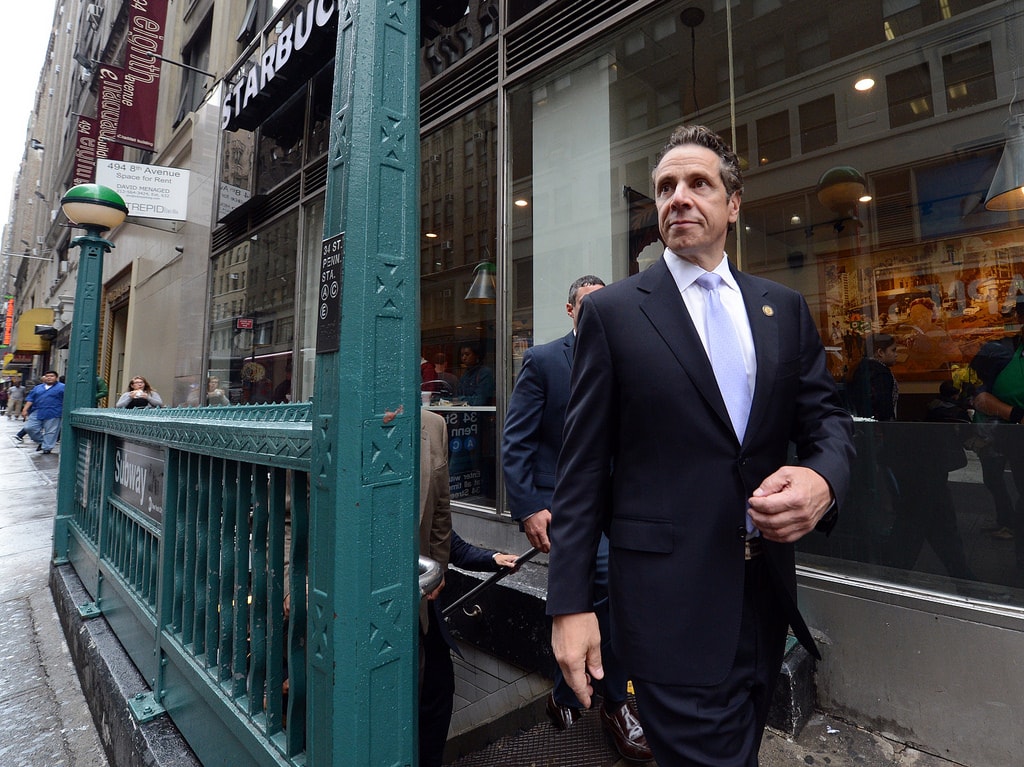
Mark A. Hermann / MTA New York City Transit / Flickr / CC BY 2.0
On October 21, 2015, New York Governor Andrew M. Cuomo signed five new bills into New York State law, which significantly enhance employees’ rights in the workplace. The new laws and amendments to existing New York State law will go into effect on January 19, 2016.
Equal Pay
Governor Cuomo has amended New York’s wage laws in two important ways. First, employees’ ability to inquire about, discuss or disclose their wages will receive legal protection. Under current law, employers can arguably threaten suspension or termination if employees discuss their wages with each other. As of January 19, 2016, employees will have the right to inquire about, discuss or disclose their wages. No employee, however, will be forced to discuss or disclose their wages. Employers will have the power to establish written, reasonable workplace and workday limitations on when these discussions may take place.
Second, the damages available to a plaintiff seeking recovery for a violation of the New York Labor Law have been increased. Under current law, a plaintiff is entitled to liquidated damages of 100 percent of the total amount of wages owed if his or her employer is found to have violated the New York Labor Law with respect to wage payments. As of January 19, 2016, a plaintiff may recover 100 percent of the total amount of wages owed, or, if the employer’s violation of the New York Labor Law is found to be willful, the plaintiff may recover up to 300 percent of the total amount of wages owed as liquidated damages.
Sexual Harassment
The New York State Human Rights Law will be amended to protect more employees from sexual harassment in the workplace. Under current law, employers with fewer than four employees are exempt from liability for sexual harassment. As of January 19, 2016, all employers, regardless of size, can be liable for acts of sexual harassment that violate the New York State Human Rights Law.
Family Status Discrimination
The new laws signed by Governor Cuomo also create protections for parents and guardians in the workplace. As of January 19, 2016, it will be an unlawful employment practice under the New York State Human Rights Law § 296 for an employer to take adverse action against an employee based on his or her familial status. This amendment offers protection for working parents and guardians across the State of New York to be free from discrimination based on an employer’s stereotypes of individuals caring for children under the age of 18.
Pregnancy Discrimination
Pregnant women will also receive greater protection from discrimination under the new law. Under current law, there is some confusion over the kinds of “pregnancy-related conditions” for which employers are required to offer reasonable accommodations. The new amendments define “pregnancy-related condition” as medically accepted conditions that prevent a pregnant employee from fully performing her job duties without reasonable accommodation. Under the new law, employers are legally required to provide reasonable accommodations to women with “pregnancy-related conditions.”
Full Recovery for Gender Discrimination
The new law also removed barriers for victims of gender discrimination to recover fully for damages due to an employer’s violation of the New York State Human Rights Law. Under current law, even if an employer is liable for gender discrimination, a prevailing plaintiff is not entitled to recovery of attorney’s fees. As of January 19, 2016, where the defendant is liable for gender discrimination in violation of the New York State Human Rights Law, the plaintiff is entitled to recovery of his or her attorney’s reasonable fees.
Executive Action Regarding Gender Identity, Transgender Status and Gender Dysphoria Discrimination
Finally, Governor Cuomo announced that he would be taking executive action to provide greater protection from discrimination based on gender identity, transgender status and gender dysphoria. Governor Cuomo directed the New York State Division of Human Rights to issue regulations that redefine the term “sex” under the New York State Human Rights Law to encompass discrimination based on these factors. These regulations, when passed, would make it unlawful to discriminate against an individual based on his or her gender identity, transgender status, or gender dysphoria by an employer or entity covered by the statute.
| David E. Gottlieb Partner |
| WIGDOR LLP 85 Fifth Avenue, New York, NY 10003 T: (212) 257-6800 | F: (212) 257-6845 |
| dgottlieb@wigdorlaw.com www.wigdorlaw.com |
| Kenneth D. Sommer Associate |
| WIGDOR LLP 85 Fifth Avenue, New York, NY 10003 T: (212) 257-6800 | F: (212) 257-6845 |
| ksommer@wigdorlaw.com www.wigdorlaw.com |